From zero to Zivame: 22 growth hacks from the Young India Entrepreneurship Summit
The annual National Entrepreneurship Summit organised in Bangalore by CII Young Indians, titled ‘GrowthHack,’ offered two days of useful growth insights for a packed audience of entrepreneurs, investors and professionals.
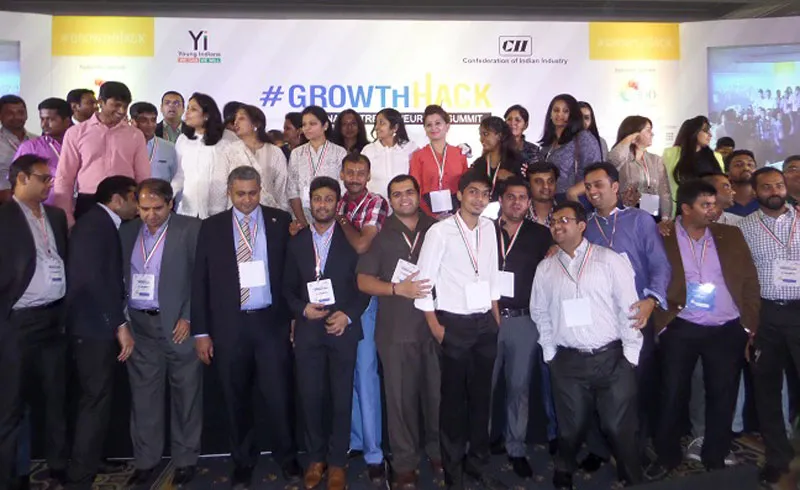
Entrepreneurs representing three waves of Indian companies addressed the Summit: Infosys (1980s), TravelJini (1990s) and the current wave (startups such as Zivame, Myntra, CaratLane, ChaiPoint). Over 300 entrepreneurs from 38 city chapters of CII Young India attended the event, which also featured a student business plan competition and spontaneous pitches from other delegates.
Growth hacks or rapid scaling techniques are generally of three types: technological (via new technologies that competitors don’t have yet), business (via marketing or internal processes) and human or personal (scaling up attitudes and culture). See for example YourStory’s coverage of growth hack experimentation, e-commerce tips, and SEO tactics, as well as the Changemaker Storytelling Canvas for founder narratives.
Here are my top takeways and tips from the 25 speakers who shared their entrepreneur journeys and advice at the CII event. See also my earlier coverage of the TiE LeapFrog event: ‘12 tips for India to seize the digital entrepreneurship opportunity.’
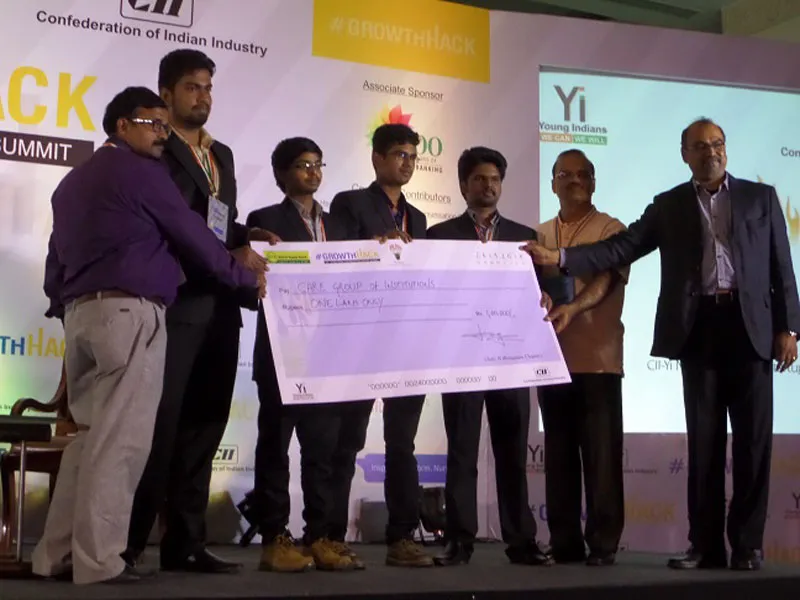
1. Focus on marketplace inefficiencies
A startup can scale well if it focuses on major market inefficiencies and solves those problems effectively – that itself will drive consumer adoption in a viral manner. “The best approach to scale is if you can change consumer behaviour at their own will, where the customers themselves change their attitude and habits because of your offering,” said Madhusudhan Ranganathan, Strategy Consultant at VigyanLabs Innovations, citing Ola Cabs and Uber as examples.
“Be married to the problem and not the solution,” recommended Raveen Sastry, Co-founder of NudgeSpot; staying focused on the customer’s changing pain points and market experiences will help ensure sustained growth.
2. Improve customer experience
Relentless focus on improving the customer experience helps rapid growth, said Richa Kar, Founder and CEO of lingerie e-tailer Zivame. “While working with clients like Victoria’s Secret when I was at SAP, I realised there was a huge opportunity to improve the lingerie shopping experience for Indian women,” she recounted. The company reports 300 per cent year-on-year growth; it now claims to sell a bra every minute and has recently raised a Series C round of investment (see YourStory update).
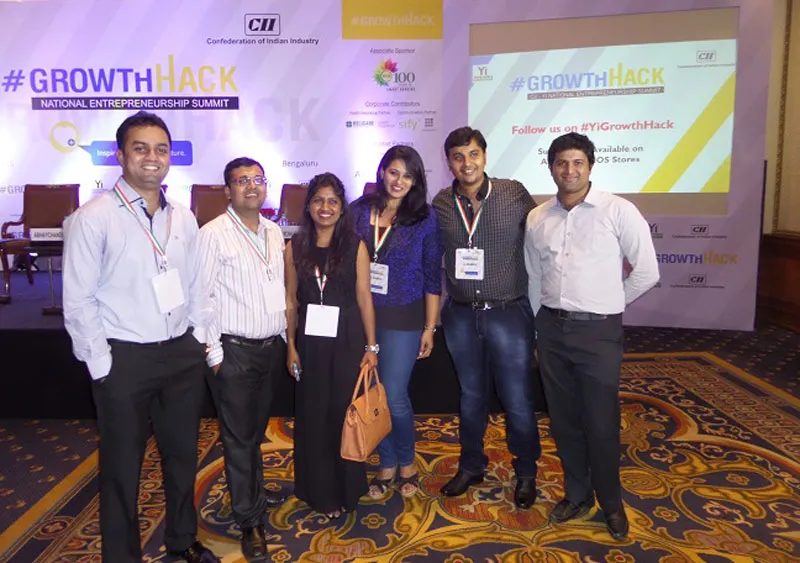
3. Technology democratises entrepreneurship – and competition
The Internet, mobile, cloud, open source and related technologies are making it easier than ever to not just start a company but scale it rapidly – but they also favour your competitors, unless you can come up with your own technology edge. “We were early in differentiating ourselves through e-commerce and then 3D printing for jewellery,” said Mithun Sacheti, Founder and CEO, CaratLane.
4. Abolish growth myths
Earlier common myths about business in India were that one can succeed only if born in a wealthy family, or that global businesses cannot be created out of India, or that most industries are saturated. These myths have been demolished by Indian entrepreneurs and should no longer prevent growth and scale, said Krishnakumar Natarajan, Co-founder and Managing Director of Mindtree. The life span of incumbent companies is decreasing, and there is plenty of room for disruption in every sector.
“The possibility to build a global business out of India has increased dramatically over the last five years,” observed Meena Ganesh, CEO of GrowthStory. New contexts are also emerging in different sectors – ed-tech opportunities today are not just in content but delivery as well, through apps.
5. Faster, cheaper, better
Growth is not just about revenues, geographical scale or number of employees, but about becoming “faster, better and cheaper,” said Kris Gopalakrishnan, Co-Founder, Infosys. This can be achieved through techniques like agile, design thinking and lean methodology. Entrepreneurs should certainly focus on getting customers faster, but not at any cost - they should also eventually make money from them, cautioned Ganesh of GrowthStory.
6. Trust your intuition – and your data
As you scale, it is important to refine your decision-making skills so precisely that you can act by instinct. “Reach for the stars, but keep your feet on the ground. Do market research and interpret the data. Be passionate but don’t get emotional about your projects and products – move on if the data says otherwise,” advised Sunder Ashok Genomal, Founder of Page Industries.
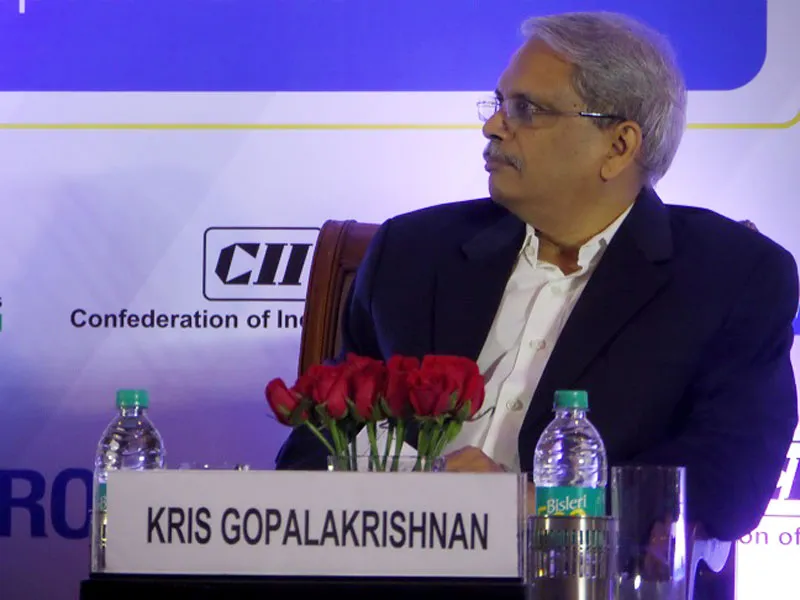
“Pull out and change your approach if you are not able to reach your goalposts, don’t end up going nowhere,” added Kar of Zivame. “You must be able to pivot and pick up a new thread,” agreed Amuleek Singh, Founder and CEO, Chai Point. The company did not find early success in blue-collar neighbourhoods, and switched focus to the white-collar market.
“You must have a mix of audacity and humility,” said Sastry of NudgeSpot. “Passion blinds you to your mistakes. You must learn to be dispassionate also,” advised Ranganathan of VigyanLabs Innovations.
7. The ‘f’ words – fear and failure
The entrepreneur journey is full of ups and downs and unsuccessful exits – get used to it, since the risk and effect of failure will only increase with the company’s scale. “I spent sleepless nights concerned about employees’ jobs as Infosys scaled up and crossed the 100,000 employee mark in 2007,” recalled Gopalakrishnan. When you start a company there is no time for worry – but this worry about failure creeps in as you scale, said R.K. Misra, serial entrepreneur and winner of the ‘Lead India Campaign.’
“As you scale, you have a moral responsibility to your employees. Some amount of fear will always be in your head, you don’t want to make employees regret joining you,” advised Kar. “Intellectual arrogance and complacency are dangerous,” cautioned Natarajan of Mindtree. The B2B services company made an illogical move into the consumer mobile phone space, and faced major losses when it flopped.
8. Scaling intellect and people
Scaling an organisation requires scaling the intellect of the leaders, managers and employees, through practices such as knowledge management, hiring a board of advisors, and succession strategies, said Natarajan. “Relentless positive optimism” will keep leaders and companies in high gear. He expanded on the scaling lessons from his predecessor, Subroto Bagchi, well captured in his book ‘The Elephant Catchers: Key lessons for breakthrough growth’ (see my book review).
Founders should also focus on successive waves of innovation and even be prepared to let go of their early products, otherwise they will be disrupted by competitors. Mindtree has an internal intrapreneur program to groom and fund successful creators. “The CEO is not always the rockstar of the company. Founders should surround themselves with people smarter than they are,” said Amuleek of ChaiPoint.
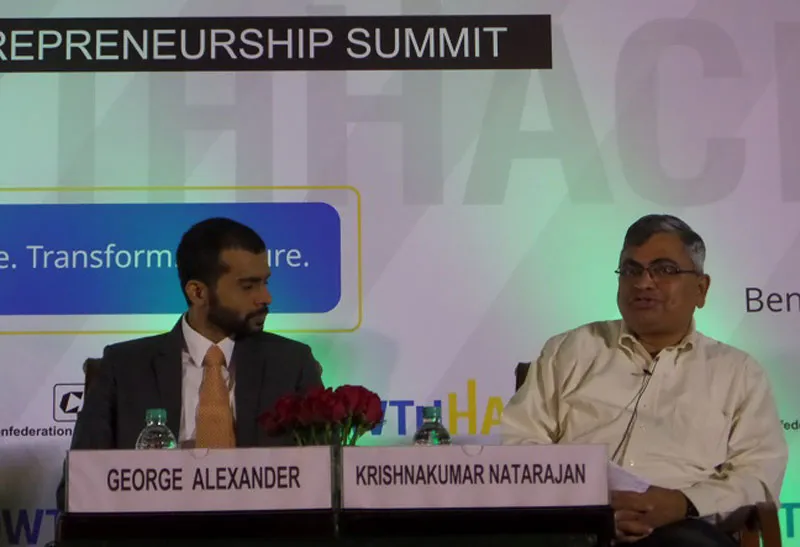
9. Learn from well-managed large companies
It is common for many in the startup community to ridicule large companies, when ironically many of these large firms themselves began as startups. Many founders also have ambitions of becoming large players in their sectors anyway. “There is no better learning ground than a well-managed large company,” said Natarajan; many of Mindtree’s co-founders themselves spun away from large companies.
A growing number of large corporates are seeing the advantages of engaging with startups (see my article: ‘15 innovation tips: how large corporations can successfully engage with startups’), so it helps founders to tie up with corporates to scale up, particularly those with B2B2C offerings.
10. Have breakfast with a lawyer
Many startups are understandably unaware of legal and regulatory approaches in their early days, but must keep them in their radar screens. “You have to be prepared to talk to a lawyer in the morning,” joked Rajnish Pal, Partner, Fox Mandal. For example, many startups in scale stage tend to switch home base to Singapore, Mauritius, Delaware or Ireland for better tax breaks.

Legal inputs will also help deal with the intricacies and controversies in sectors like travel apps, said Vijay Sambamurthi, Founder of Lexygen, citing examples such as Uber’s run-ins with the law.
11. Learn from other sectors
There is a tremendous increase in the pace of innovation across different sectors, and many creative models and techniques can be adapted across industrial boundaries. “You can pick up innovative products and even internal workflow processes. You have to experiment yourself, you can’t keep doing the same things again and again,” said Mariam Matthew, COO of Malayala Manorama.
“We have learnt from other sectors like the auto industry in Chennai,” said Sancheti of jewellery e-tailer CaratLane. (See also my book review of ‘Cross Industry Innovation’ by Ramon Vullings and Marc Heleven.)
Entrepreneurship can be a long and lonely journey, and it is important for founders to get help, surround themselves with people who can challenge them, and get ideas from counterparts in other industries, said Ganesh of GrowthStory.
12. Tap the ecosystem: business plan competitions, incubators, accelerators
A good quick way for a founding team to get visibility, feedback, branding and even funding is to tap the broader startup ecosystem. At the Summit, five student startups from colleges like IIM Tiruchy and IIT Madras pitched to a jury. The winners received excellent advice – as well as prize cheques, funding offers and incubation slots from NSRCEL at IIM Bangalore and Axilor. (See also my question bank compilations from TiE pitch competitions for mobile developers and ed-tech startups, and Catapoolt events.)
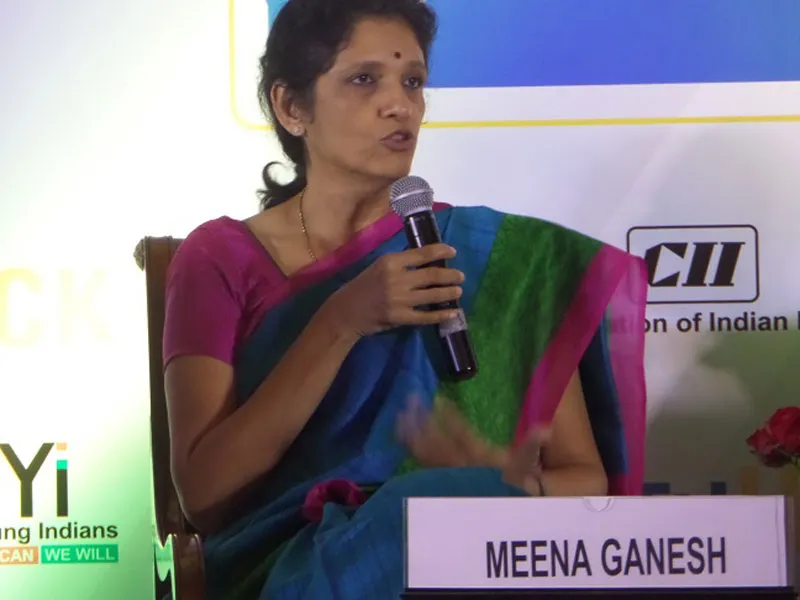
13. Money for growth
Bootstrapping is great, but sometimes cannot take you to the next stage. It is important to figure out which approaches to take for funds, such as debt or equity, and which investor to go with, advised Mathew of Malayala Manorama. “At times, you may need the money more than anything else, at other times you may want more of a partnership with the investor,” said Sancheti of CaratLane. Other issues of alignment arise when the investor’s portfolio includes startups very different from yours. “Taking others’ money increases your pressure to perform,” said Sancheti.
Relationships with investors can vary from dining partner to live-in relationship and marriage, and sometimes even divorce, joked Gopal Srinivasan, Chairman of TVS Capital Funds. Going the investor route may also mean that you have to grow at the investor’s defined pace, said Sambamurthi of Lexygen.
14. Think beyond money
Money should be only one of many objectives for a founder. “Money should not be your sole objective, because you will never make enough money to keep yourself happy. Success comes only when you keep making yourself a better person,” said R.K. Mishra. “Making a good impact is the best source of happiness for an entrepreneur. That should be your core purpose,” said Madan Padaki, Founder of Head Held High Services.
Whether you have a slow-burning internal fire or an exuberant expressive style, your ambition will drive your route, said Srinivasan of TVS Capital Funds. “Ambition is the mother of success,” he added.
It is certainly important to have money to take care of family and employees, but passion and overall fulfillment are as important. “There is nothing wrong in loving money, but don’t be greedy,” said Natarajan of Mindtree. Becoming a thought leader, being invited to give inspiring talks, getting on advisory boards, and giving back to society are other measures of successful growth. “You create meaning for yourself through your entrepreneurial journey,” said Muki Regunathan, Founder of Pepper Square.
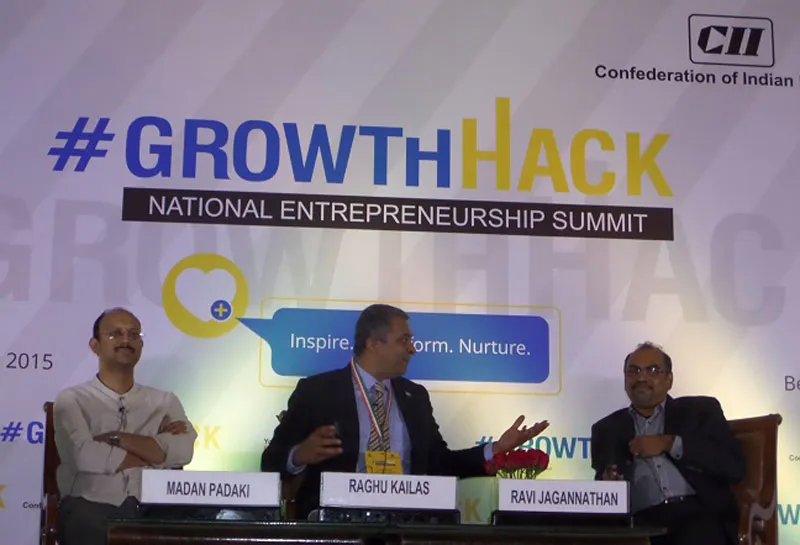
15. Value and values
In many countries, particularly emerging economies like India, there is much temptation to bribe to get ahead, to choose corruption to scale up. “Build things of value, with values. Build your company the right way,” advised Gopalakrishnan of Infosys, urging entrepreneurs not to give or even take bribes.
At an earlier event, his colleague N.R. Narayana Murthy had said: “Build your reputation from Day One. It is always a good time to be good. You have to be willing to pay a certain price for your beliefs. That is what values are about” (see my article: ‘From Infosys to Snapdeal: 25 years of startup wisdom at the Times LitFest’).
16. Create your own ‘LUCK’
It is easy to believe that much of entrepreneurship is about good luck (though good timing certainly helps). “You have to create your own LUCK – location, understanding, connections and knowledge,” said Padaki of Head Held High Services.
“If you have chosen a good problem to solve, emerging technologies will present an opportunity to scale even if they are an unfamiliar domain,” said Ravi Jagannathan, CEO of Y-Cash, which now has the opportunity to branch out into crypto-currency. “Coincidences happen for a reason,” he said.
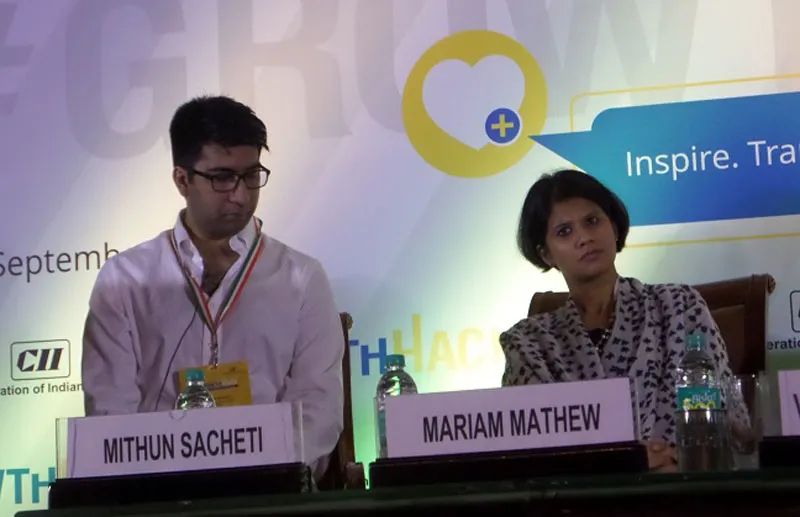
17. Manage the work-life balance
It helps to have one’s family solidly behind a founder. “I had an arranged marriage when I had a job, but didn’t tell my in-laws that I was quitting to found Infosys. But they were supportive since my father-in-law himself was an entrepreneur who ran a movie theatre,” joked Gopalakrishnan. “I was lucky to have a supportive wife – I was so busy traveling for work that I did not get to know my first kid,” recalled R.K. Mishra.
The situation is different for women entrepreneurs, as covered by authors like Rashmi Bansal in her book, ‘Follow Every Rainbow: Inspiring Stories of 25 Women Entrepreneurs’ (see my book review). Generally, it is easier for a husband to get his wife’s support than for a wife to get her husband’s support in an entrepreneurial venture in India (also see HerStory tips on this issue).
18. Start all over again
Many successful entrepreneurs scale themselves and their expertise by becoming serial entrepreneurs, investors, mentors, advisors, coaches - or all of the above. “Start all over again,” advised Natarajan of Mindtree. Good examples of serial entrepreneurs at the CII Summit included Raveen Sastry (Myntra, Nudge Spot) and Meena Ganesh (TutorVista, Portea, GrowthStory).
19. Growth in the next tiers of cities
“Bangalore is at the forefront of entrepreneurship in India,” said Shaurya Veer Himatsingka, Deputy Managing Director of India Carbon, and National Chairman of CII Young Indians. Three waves of companies have been started here. Infosys moved its headquarters from Pune to Bangalore thanks to a Rs 27 lakh loan from the Karnataka State Finance Corporation, recalled Gopalakrishnan.

But now entrepreneurship is spreading to other cities and needs to be accelerated more. “Tier 3 and 4 cities like Erode and Salem are giving rise to new kinds of startups, not just the earlier traditional industries,” said Gopalakrishnan. The optimism of youth and their ‘can do’ attitude should be replicated in every industry and city, he urged.
There is a huge boom in rural entrepreneurs as well, and many of them are solidly focused on business basics and not on Series A funding, observed Padaki. “It is possible to do good, feel good and make good money. By doing the necessary and possible, you will achieve the impossible,” he said, urging entrepreneurs to address rural India as well.
20. Destination India
India is seen as a growth destination not just by Indian entrepreneurs but NRIs and overseas professionals as well. “The entire world is coming to India,” observed Gopalakrishnan. Sunder Ashok Genomal grew up in the Philippines and worked in the UK, Nigeria and Indonesia before starting telecom company Page Industries in Bangalore. “It is a joy to work with the people of India, they can become the best talent in the world,” he said.
“The India growth story cannot be ignored,” Genomal added, joking that his Sindhi roots and business mentality also helped his move back to India. Sectors like e-commerce will continue to be hot growth areas despite concerns about excessive valuations, simply because technology and the need to organise retail are strong drivers, he said.
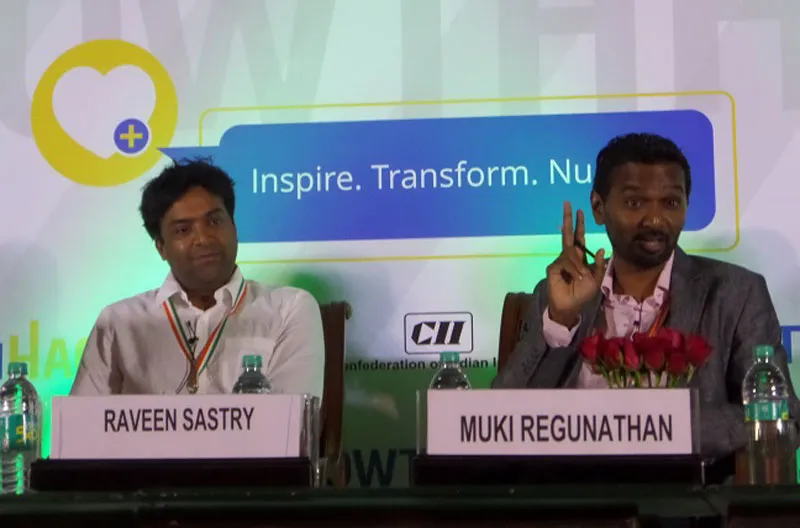
21. Social entrepreneurship
Many successful business entrepreneurs have scaled up their intentions and contributions by branching out into social entrepreneurship or the NGO sector. Some of their initiatives in this space include SVPIndia.com (Social Venture Partners) and IGotGarbage (garbage management solutions), said Natarajan of Mindtree.
Bill Gates and Vinod Khosla are other high-profile examples of successful tech entrepreneurs who are bringing professional experience, venture models and innovation into the civil society sector to scale solutions to seemingly intractable problems.
22. Hack politics
One reason India seems to be in a political mess is the fact that many successful entrepreneurs and professionals prefer to avoid government as much as possible. “India also needs political entrepreneurship,” said R.K.Misra, serial entrepreneur and activist. He previously founded Tenet Technologies and one of India’s first travel portals, TravelJini.com. Entrepreneurs have the skills of building things from the ground up, and these should be used in political contexts as well – for example, in promoting business-friendly policies.
Misra later engaged with politicians by founding the Indian Council for Public-Private Patnerships (SAHYOG) to dialogue with citizens in the matters of public policy. “You have to engage with politicians, but don’t necessarily have to become a politician yourself,” he advised.
There are only a few outstanding engineer-entrepreneurs who have made contributions to governance in India from within, said Mishra, calling for many more to follow their example: such as Nandan Nilekani (Infosys, Aadhar), Sam Pitroda (CDOT, National Knowledge Commission) and E. Sreedharan (Delhi Metro Rail).
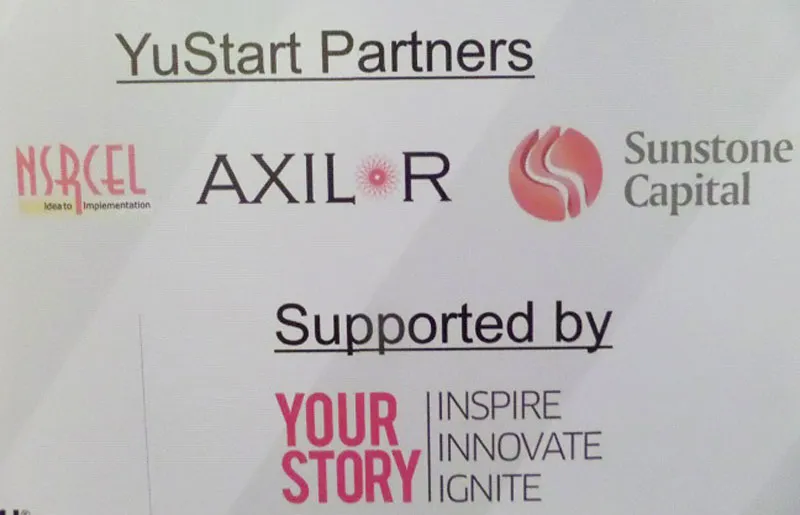
The government’s role in boosting entrepreneurship should be improving ease of doing business for startups, creating long-term research and education frameworks, and setting the appropriate “tone at the top,” said Srinivasan of TVS Capital Funds. Good examples to learn from include China’s infrastructure policies and deployment, said V.S. Parthasarthy, CFO of Mahindra and Mahindra.
“There is a streak of entrepreneurship in everyone,” concluded Gopalakrishan. The key to long-term success is getting the right idea at the right time, acting on it, and scaling it to high-growth performance.
“There is never a right time for you to become an entrepreneur – just do it now,” urged Padaki.







